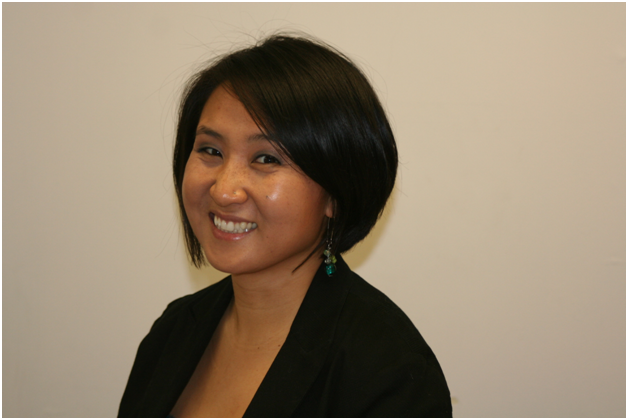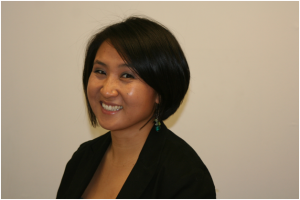Faithful Action for Immigration Reform by Sung Yeon Choi-Morrow
Movements are not lofty things we only learn about in history books or from PBS programs. Movements are built by people in their homes, on the streets and in their churches. Movements require us to get out in public and speak truth to power. Movements cannot be built simply by sitting in front of our computers clicking “Like” buttons on Facebook pages.
All social movements that have brought about significant change have had one thing in common: people. It takes people to create change. Dynamic, charismatic leaders like the Rev. Dr. Martin Luther King, Jr., Nelson Mandela, and Mahatma Gandhi, would not have gone down in history as such great leaders of movements if it weren’t for the people around them. There are occasions when significant change comes about because of one person’s actions, but –against most romantic individualism–only rarely does individual action reshape the common good.
As Presbyterians, we try to be aware of Christ’s call to live as agents of transformation. We engage our world to seek Shalom, to seek God’s Kingdom, here and now. In order to bring about God’s peace and Kingdom, we have to come together as God’s people. Social change moments do not spring up on their own. God chooses to work through us to bring justice to our broken world.
Today, we have an opportunity to participate in an historical social change movement. Immigration reform is not a new issue for Presbyterians. In 2004, the General Assembly of the Presbyterian Church (U.S.A.) voted to create an Office of Immigration Issues. While PCUSA’s commitment to this particular social justice issue is wonderful, we know that creating an office is not going to push immigration reform through the U.S. Congress. We, the people, must act.
Interfaith Worker Justice (IWJ) provides resources for those who are ready to act! Founded in 1996, it is the leading national organization committed to strengthening the religious community’s involvement in issues of workplace justice. Interfaith Worker Justice and its affiliate network of more than 40 interfaith groups and 27 worker centers continue to be major players in the struggle to end wage theft, the push to increase the minimum wage, and efforts to pass comprehensive immigration reform that safeguards the rights of all workers, regardless of immigration status.
The 2012 re-election of President Obama brought immigration reform to the legislative forefront. Even some Republican leaders are willing to address comprehensive immigration reform. Ultimately, if people are involved, if enough of us say we want fair and humane immigration reform, it will happen. Roll up your sleeves and let’s get to work! Here are some helpful things to keep in mind about how you can get involved over the next few months.
March: Schedule an in-district meeting with your Congressional Representatives or Senators during one of the recesses or weekends expressing your support for fair and fast immigration reform. This meeting is important to understand the elected official’s position on immigration. After this meeting, you should strategize on what it will take to get a “yes” from your elected official and come up with a game plan.
For a toolkit on how to lead a delegation to your local legislator, visit IWJ’s resource center.
April: Educate folks in your congregation and community about the importance and benefits of immigration reform. You can download “Welcoming the Stranger: Immigration and the Church,” an adult education Bible study guide. Participate in rallies and actions on April 10 across the country. Find out if there is a rally in your area. If not, organize one! IWJ developed lots of resources and toolkits to guide you through organizing a prayer vigil or other action. You can also contact IWJ for additional tips and support.
May: Plan to participate in May Day rallies and actions on May 1. These are going to be big public gatherings of people in support of immigration reform. Find out who is planning these in your area and see how religious leaders such as yourself can contribute to the day. Contact the PCUSA Office of Immigration Issues or Interfaith Worker Justice for more information about events near you. If there isn’t an event near you, you can organize one! Even if it’s a small event at your church, go for it!
June — August: We don’t really know how much time we will have, but the legislation for immigration reform is likely to move into the summer. We will need to generate thousands of post cards, letters and calls to elected leaders. Faith leaders will need to conduct multiple delegations, community/church events and press events. We will concentrate efforts in priority districts. These are congressional districts that are often rural and suburban districts without many immigrants. Consider ways you might get involved this summer:
- Intern for the summer in a priority district (though Interfaith Worker Justice)
- Call your friends in priority districts
- If you live in a priority district, consider supporting a summer intern by providing housing or transportation for the summer
- Collect letters and postcards from your community and lead a delegation to your elected official
Immigration reform will bring justice for many families- not just a change in their legal status but better worker protections for America’s most vulnerable workers, whose children will be able to go to college and live out a vocation because they no longer have an obstacle of documentation in the way.
There is no simpler way to show hospitality to our neighbors than to affirm their already existing presence in our midst and welcome newcomers in a humane and respectable way. We need not look any further than the Bible — with its many stories of migration and hospitality — to find reasons to advocate for immigration reform. With a list of ways you can get involved, you have more reasons to be active advocates.
Sung Yeon Choi-Morrow is a national organizer for Interfaith Worker Justice.


